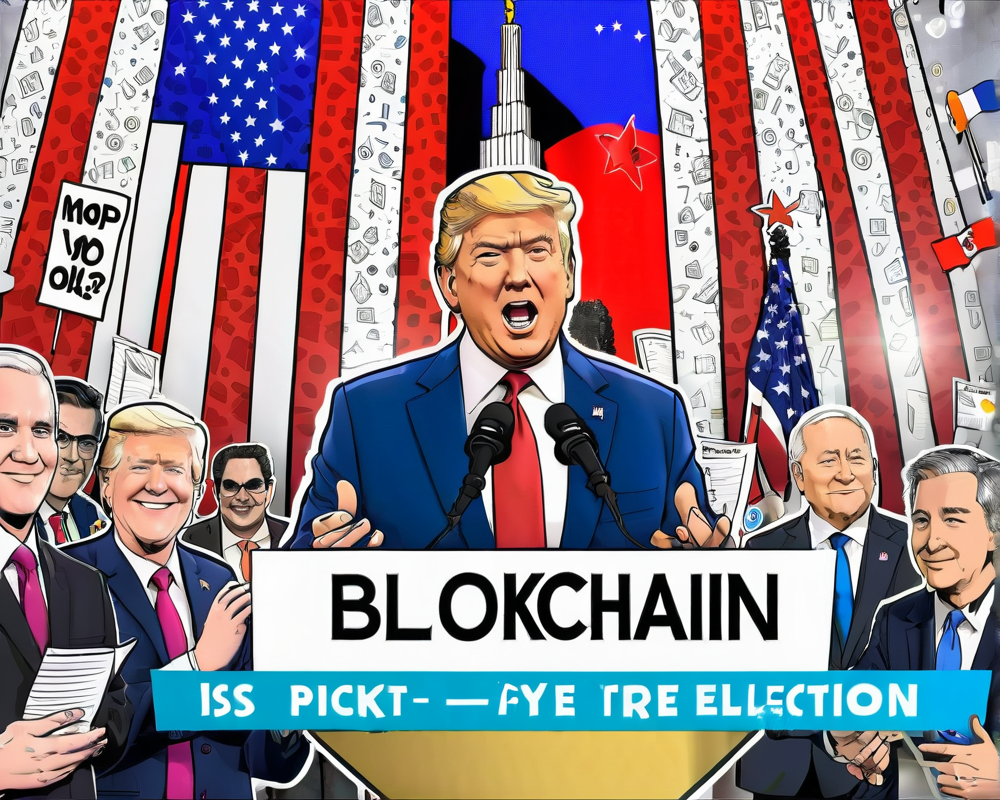The Evolution of Blockchain in Elections
Once dismissed as a sci-fi novelty, blockchain technology made a splash during the recent U.S. presidential elections. Major players, including the venerable Associated Press (AP), dabbled in publishing election results on blockchains like Ethereum and EOS. But what’s the underlying message? Are we ready to roll out blockchain as the gold standard for election integrity, or is it just a fanciful experiment lacking a solid game plan?
Centralized Sources vs. Decentralized Faith
Now, the AP is no slouch when it comes to calling elections—it’s been doing it since 1848. Some might say it’s “arguably” the most reliable news outlet on the planet, but let’s not punch our tickets just yet. As some pointed out, just because data resides on the blockchain does not automatically make it trustworthy. In fact, the skepticism around using AP data as a trusted oracle might be rooted in the age-old debate: does centralization mean vulnerability? Can we truly blame Twitter users for raising an eyebrow or two over this?
Can Hackers Ruin a Good Thing?
Imagine a scenario: the AP gets hacked, and suddenly we’re licking our wounds while conspiracy theories take flight about the integrity of the election. Some experts, like Thomas Stubbings from the Austrian Cyber Security Platform, assure us that breaches are caught quicker than a squirrel in a cat video. But can we trust a centralized outlet in a decentralized world? As he points out, centralization might be easier to manipulate than we think—just ask Facebook about the Cambridge Analytica fiasco!
The Oracle Dilemma: When Data Isn’t Enough
So, what’s the solution? Enter oracles, the unsung heroes of blockchain that can supply real-world data in a trustless manner. But here’s the catch: not all oracles are created equal! Alice Corsini from Provable Things describes oracles as crucial gatekeepers that must provide validated information—yes, the integration of robust security measures is key, but the original source still matters. In short, if your oracle is fed stale data, your blockchain could become a digital dumpster fire.
The Future of Voting: A Hybrid Approach?
Perhaps it’s time to rethink our approach. Instead of relying on a single oracle (looking at you, AP), a diversified strategy using multiple data sources could enhance reliability. Imagine pulling data from various outlets—local news, social media buzz, even some classy foreign news sites—before settling the score on election results. As the saying goes, the more, the merrier! Economic incentives could also play a role to validate data, as seen in prediction markets like Augur.
Conclusion: Are We There Yet?
The flurry around the AP’s blockchain endeavor is exciting but doesn’t necessarily mean we’re ready to frolic into a brave new world of voting. As Ashley Pope from Fortis Block puts it, many election processes still operate like they’re stuck in the 1800s with paper ballots. While blockchain can indeed boost transparency, our trust issues may need a bit more TLC before we can embrace it wholeheartedly. So until then, let’s keep our fingers crossed, our oracles verified, and perhaps sprinkle a bit of skepticism here and there!



